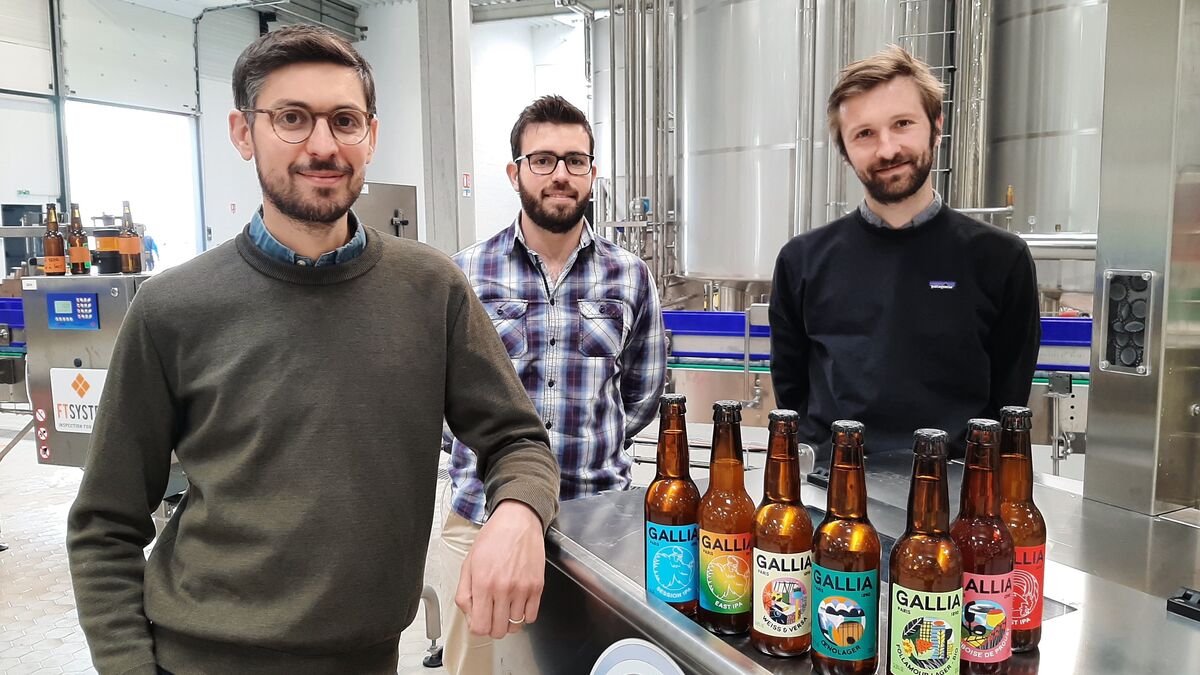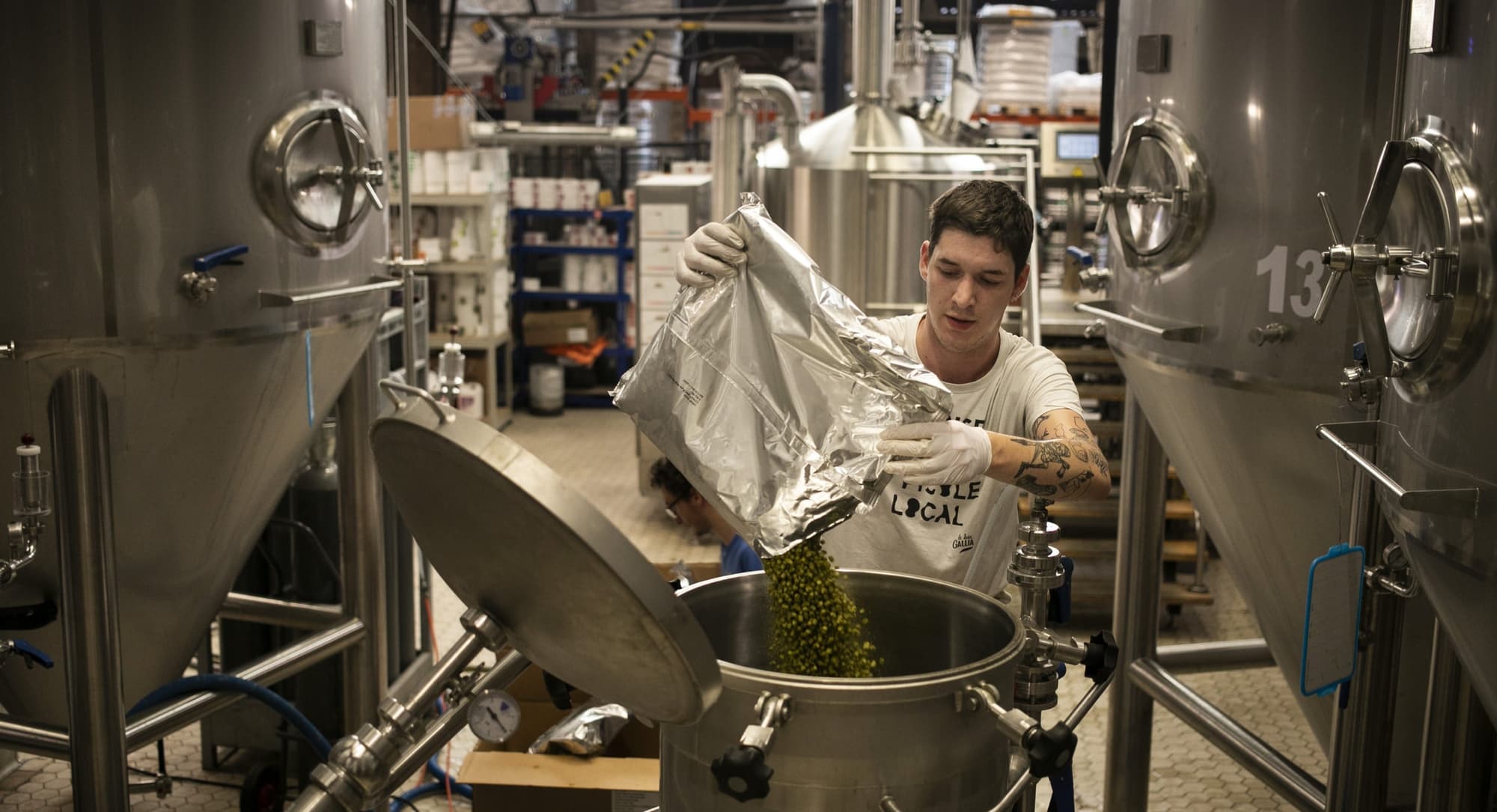In the flourishing landscape of the beer industry, a significant event marks a decisive turning point: Heineken announces the closure of the Gallia brewery in Sucy-en-Brie, scheduled for the end of March 2025. This decision, although it may seem surprising at first, is explained by evolving market dynamics.
The brewery, inaugurated in March 2021, was designed to support the production of bottled Gallia beers, particularly those in 33cl bottles. However, in the face of a declining demand for this specific format, economic challenges and changing consumer habits have led the brewing giant to reevaluate its strategy. Consumers, influenced by factors such as inflation and evolving habits, are increasingly turning to alternatives such as 50cl cans and 75cl bottles.
Thus, Heineken is forced to adapt its offering and redeploy its resources, leading to the end of an adventure that, although promising, has proven too fragile against the transformations of the craft beer market.

Table des matières
ToggleHeineken ends the operation of the Gallia brewery in Sucy-en-Brie
The closure of the Gallia brewery in Sucy-en-Brie, decided by Heineken, highlights the fluctuating dynamics of the craft beer market. Opened in March 2021, this production site, which was designed to meet a growing demand, is now set to close its doors by the end of March 2025 due to low demand for 33cl bottles. This strategic choice by the brewing giant raises questions about the evolution of consumer behavior as well as the challenges facing the beer industry.
The reasons behind the closure of the brewery
Heineken’s decision to close the Sucy-en-Brie brewery is based on several key factors. Firstly, a marked shift in consumption habits has reduced interest in traditional 33cl bottle formats. Recent data shows that consumers are increasingly turning to larger formats, such as 50cl cans and 75cl bottles, favored for their value for money. This trend has accelerated due to inflation and decreasing purchasing power, prompting consumers to seek more economical options.
The numbers speak for themselves: over the last two years, the brewery has seen a more than 50% increase in sales for preferred formats in bars and restaurants, creating a mismatch between the production capacity of the brewery and market demand. Heineken has clarified that the site was “too small to produce the large Gallia references” while being “too large to dedicate itself to the production of small batches” of craft beers, resulting in a significant underutilization of the brewery.
Consequences and options for the future
The closure of the Gallia brewery in Sucy-en-Brie is not just a logistical change for Heineken. This decision also impacts the employees working at this site, raising crucial questions about the relocation of these positions. Heineken plans to redistribute the produced volumes to other establishments, notably bringing some of them back to its original site in Pantin. However, this transition will not be without challenges. The process of reallocating employees and resources must be managed carefully to minimize the impact on the workforce.
For the future, this exacerbates the need for craft breweries to reinvent themselves in a competitive environment. It raises the question of innovation and adaptation to consumer needs. Breweries should consider professionalizing their production processes to synchronize their responsiveness with market demand, which seems to favor large distribution. Creating varied beers, which can be offered in different formats to suit consumer preferences, could be beneficial.
An example to consider could be that of American breweries that have successfully diversified their product ranges, demonstrating flexibility. By understanding their customers and adapting to their tastes, they have been able to expand their market reach even during times of change. This proactive approach could be beneficial for companies like Heineken, which must be aware of the constant movements in the craft beer market.
The prospects for the beer industry are constantly evolving with an ongoing quest for innovation. Craft breweries will have to juggle tradition and modernity, learning to utilize advanced management tools such as analytical data systems to assess consumer demand. By being attentive to market trends, these entities can better position themselves against players the size of Heineken.

FAQ regarding the closure of the Gallia brewery in Sucy-en-Brie
What is the reason for the closure of the Gallia brewery in Sucy-en-Brie? Heineken has decided to close this brewery due to low demand for 33cl bottles and an inadequacy of the equipment in light of the changes in the beer market.
When will the brewery close its doors? The closure of the brewery is scheduled for the end of March 2025.
What impact will this closure have on employees? The Sucy-en-Brie brewery has 13 positions, and the closure will therefore impact these employees.
What production volumes will be affected by this closure? The production volumes of the Sucy-en-Brie brewery will be distributed among other Heineken sites, notably the one in Pantin.
Has Heineken taken other measures in response to this market evolution? Yes, Heineken has invested in marketing actions to support the development of the Gallia brand, while seeking to adapt production to new consumption trends.
What has been the history of the Gallia brewery in Sucy-en-Brie? Opened in March 2021, the brewery quickly sought to increase its production capacity, but it failed to adapt to the new consumer preferences.





